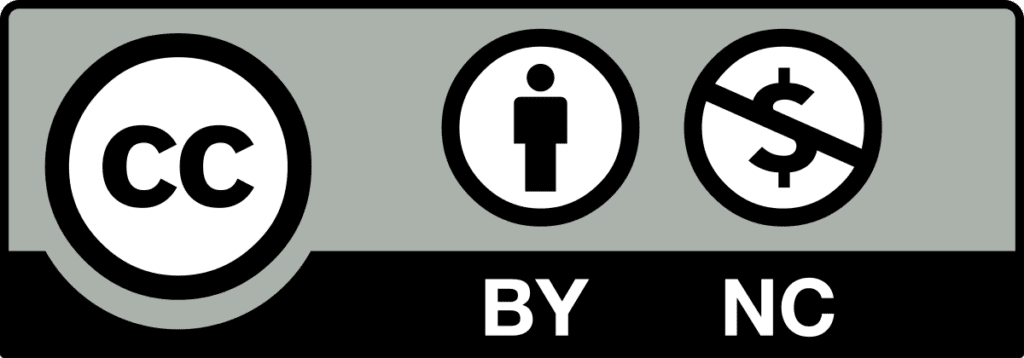It’s the ugly little secret of high achievers everywhere, whether award-winning actors, world-renowned writers or titans of industry. Whatever they’ve achieved, it’s a good bet that most of them, at least sometimes, feel like undeserving frauds just waiting to be exposed.
This puts any professional dealing with self-doubt in very good company.
Consider “Carla,” a senior litigation partner at a global law firm, who questions whether she can be her “true self” and “still be good” at her job. Then there’s “Brooke,” a journalist and television producer of an award-winning documentary series, who is convinced that she is “not a real journalist.” And “Gavin”, a senior executive at a major investment firm, who tends toward self-deprecating remarks and lots of apologies.
What do these three people all have in common?
Each is at the top of their game professionally, with impressive records of lifetime achievement. At the same time, each is riddled with feelings of anxiety and inadequacy. They worry that they aren’t smart enough, capable enough, or devoted enough—no matter how many hours they put in or how many accolades they rack up. Each is convinced that “everyone else” at work truly belongs, while they themselves must “fake it to make it.”
Each suffers from Imposter Syndrome.
As a coach, I have worked with countless professionals, all of whom are intelligent, ambitious, dedicated and capable, yet who continue to struggle day-to-day to proudly claim their many talents. They are far more likely to focus on their supposed flaws than their accomplishments. Rather than allowing themselves to feel even a modicum of satisfaction, they push themselves ever harder, chasing one accomplishment after another, never quite feeling that they’ve arrived. Striving becomes a way of life, while any sense of contentment remains elusive.
As Pema Chodron, a Tibetan Buddhist teacher and author, writes, “The most difficult times for many of us are the ones we give ourselves.”
If any of this rings true for you, try the following:
AFIRE MAILING LIST
The AFIRE Mailing List is sent intermittently with updates on AFIRE news, publication opportunities, research and survey invitations, tax and regulatory bulletins, and other information advancing real estate thought leadership.
Fill out the form below or click here to subscribe.
Pause and Breathe
Stressful thoughts activate the body’s fight or flight response. Deep, deliberate breathing activates the body’s parasympathetic nervous system, and will help ease any tense or stressful situation. Should you catch yourself slipping into any sense of inadequacy or dread, simply pause and breathe. Take a deep inhale, letting your belly inflate and your lungs fill. Hold for a moment, then let out a long, slow exhale. Repeat this as many times as necessary, focusing on the in breath and out breath, until you feel yourself settling down.
Adopting a regular meditation practice will make this type of breathing more instinctive and effective, but this on-the-spot practice of pausing and breathing will always work in a pinch.
Acknowledge, Accept, Investigate
Take care not to judge yourself too harshly for any insecure thoughts. (Remember, we all have them.) Recognize and accept them as a normal part of being human, rather than trying to shove them away. That may seem counterintuitive, but anything we resist tends to persist. Instead, acknowledge your feelings, sit with them for a moment, then get curious. Why does an upcoming Zoom meeting or negotiation trigger such fear? What exactly is everyone finally going to discover about you? Is it that you’re not up to the job, not worthy of their confidence and possibly just not that smart?
Whatever fears your investigation uncovers, they are unlikely to stand up against deeper questioning. You have, after all, gotten this far. Make a note of that, then list some more hard evidence of your validity and worth.
Focus on the Facts
To make your list, recall some successes you’ve had, or smart choices you’ve made. How have you added value to your firm? If you are anything like Carla, Brooke, or Gavin, you have a history of achievement, whether at school, work, in your relationships or other areas of life. Think about the people who depend on you, who seek you out for advice or high-level projects. Taken together, this is all solid evidence that you are capable and an asset, not a massive liability waiting to happen. Make a written list of your many accomplishments, and keep it handy. Pull it out—literally or mentally—whenever imposter syndrome threatens to get you down
Remember the Three P’s
What are some Positive, Pride-Worthy, and Powerful things about you? These may overlap with that list of accomplishments, but can also go further, beyond the office. Reflect on your relationships, your contributions to your community or anything you value about yourself. Human beings are saddled with a negativity bias. We are programmed to scan for problems and control for weaknesses. In the process, we rarely celebrate our strengths. You can counter this tendency by setting aside a little time each day—while brushing your teeth, walking to work or whenever you like—to acknowledge your many wonderful qualities. Making this a regular practice can actually change the structure of your brain, making those imposter thoughts less reflexive, while generally bolstering your ability to think confident thoughts.
Phone a Friend
Feeling like a fraud can take a serious toll. For example, in my earliest days practicing law, I felt like a kid playing dress up. I had no idea what I was doing, but I was certain everyone else did. At the same time, I was determined to act the part of the competent, capable attorney, while keeping my doubts and insecurities to myself. I wasted time digging up answers to questions I should have just asked. I avoided challenging projects and people out of a fear of falling on my face. Fortunately, I eventually found the confidence to be more honest with a few colleagues and trustworthy mentors. Confessing to those feelings of inadequacy opened up pathways to conversation and gave me the freedom I needed to start asking questions and taking on new risks and challenges.
Find someone you trust, and share some of your worries. Or request a review or constructive feedback from a higher up. The relief alone will be worth it, and the results will likely surprise you, too.
Use Carrots Not Sticks.
Imposter syndrome is just another iteration of the inner critic, whose primary job is to protect you, to ensure your survival and even to give you a competitive advantage. Feelings of inadequacy and fear of humiliation are techniques the mind uses to push us harder and harder, further and further, lest we fall behind. Many of my clients are even tempted—at least initially—to credit their imposter syndrome for keeping them motivated and helping them succeed. Until we probe a little deeper.
It’s true that fear can fuel you, but too much of it can be draining—and even self-sabotaging. Try self-compassion instead. Swap the energy spent berating yourself for some positivity and gentle encouragement. Research shows that being kinder to yourself actually boosts self-confidence and promotes greater success.
Personally, I use every one of these tools on a regular basis. This has led me to pursue opportunities I might have declined, to take risks I might have avoided and, most importantly, to move through my days with more ease and confidence, more enthusiasm and satisfaction. Real-life versions of Carla, Brooke, and Gavin, who have begun observing these practices, report much the same.
Try pursuing your work—and your life—from a gentler, kinder place. Trust in your efforts, experience, and skills. Acknowledge your weaknesses or any mistakes you have made, but don’t let them define you. Learn from them, take ownership of them, but maintain a larger perspective. Celebrate your successes, and make sure to take ownership of those, too.
Tal Fagin is a Certified Life Coach who helps people to pin-point and solve problems, and to devise strategies that help them live fuller, freer, more balanced and fulfilling lives. To learn more about Tal Fagin and her executive coaching services, visit talfusion.net.

This article is an extension of AFIRE’s Rising Leaders conversation, recorded in July 2020. Tal Fagin, a Certified Life Coach and the founder of Tal Fusion, LLC, led a discussion on how personal growth, learning, and development for today’s rising leaders is integral to team cohesion, organizational change, and future success. The soft skills of leadership may actually be the hardest to learn.
Watch a recording of the discussion here below (MEMBERS ONLY / PASSWORD REQUIRED).
Panelists:
- Lola Bellini, Director, Wafra Inc.
- Maggie Coleman, Senior Managing Director, Co-Head International Capital, JLL
- Bryan Sanchez, Chief Investment Officer, Lionstone Investments
- Tal Fagin, Certified Life Coach, Tal Fusion, LLC

(If you are an AFIRE member and unable to access this video, please contact Benjamin van Loon for your credentials.)

